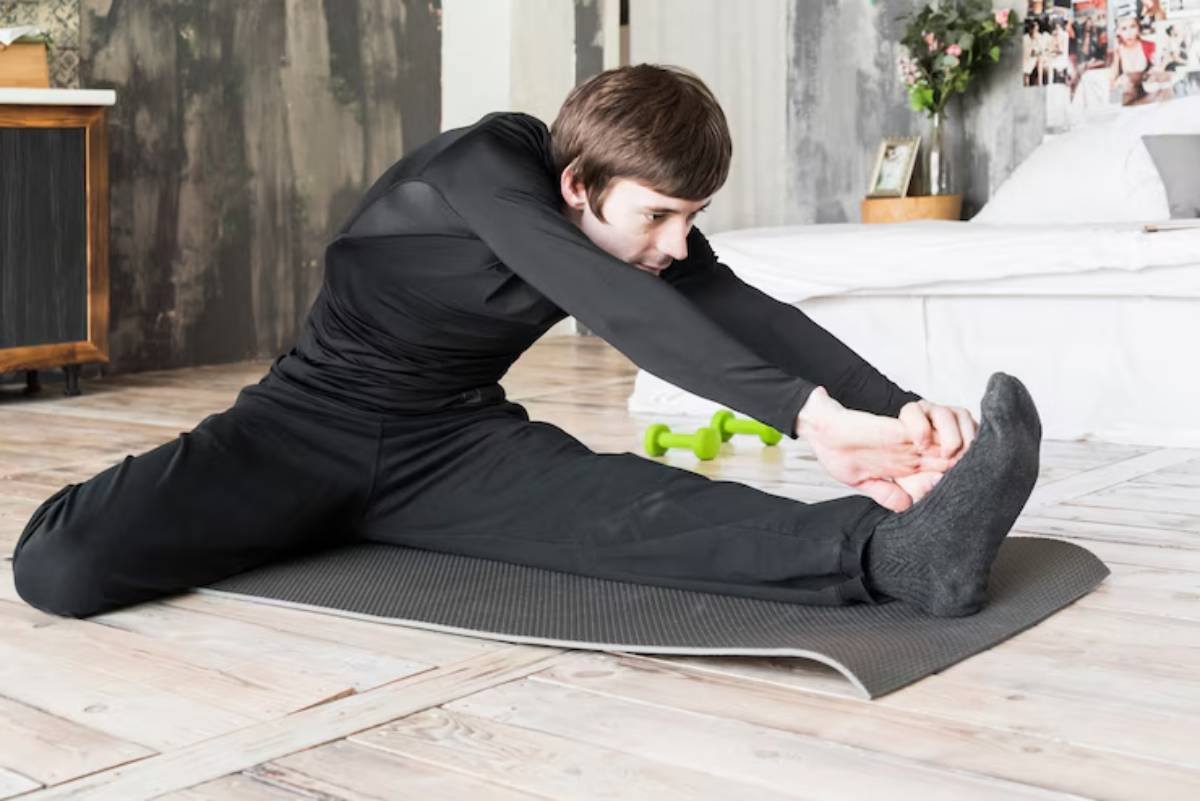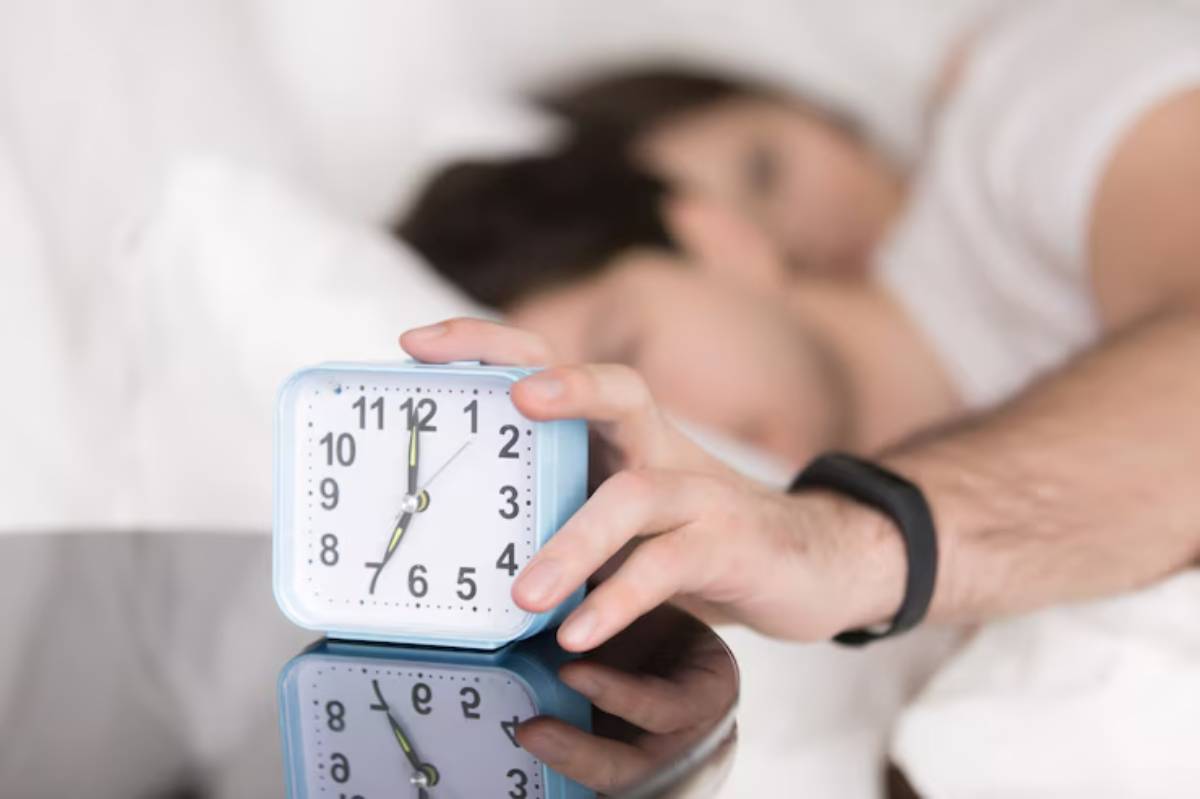
Evening Rituals to Enhance Sleep & Recovery
You’ve pushed through a hard session — maybe it was strength training, a high-intensity workout, or a long run. Your muscles are tired, your mind is ready to unwind… but your body? It’s still in high gear.
Here’s the truth: what you do in the hours after your workout can be just as important as the workout itself. Your recovery doesn’t stop when you leave the gym — in fact, it’s just beginning. And one of the most powerful recovery tools at your disposal isn’t a supplement, massage gun or fancy foam roller — it’s sleep.
But great sleep doesn’t just happen. It’s something you create through simple, repeatable evening rituals that support muscle repair, reduce stress, and signal to your body that it’s time to rest.
In this guide, we’ll explore how to build an effective nighttime recovery routine, improve your sleep hygiene, and boost post-workout sleep quality. Whether you’re an athlete, weekend warrior, or simply looking to wake up feeling less sore and more energised, this is for you.
Why Sleep Is the Unsung Hero of Recovery
Let’s start with why this matters. During deep sleep, particularly slow—wave (non-REM) sleep, your body releases growth hormone, rebuilds muscle fibres, clears waste from your brain, and consolidates motor learning from training.
Miss out on quality sleep and you’ll likely experience:
- Increased muscle soreness and slower recovery
- Reduced performance and strength output
- Weakened immune response
- Poor mental clarity and mood
In fact, a 2022 review published in Frontiers in Physiology highlighted sleep as a key recovery pillar, alongside nutrition and hydration. Without enough restorative sleep, your fitness gains stall — no matter how hard you train.
Understanding Sleep Hygiene
“Sleep hygiene” refers to the habits and environment that help you fall asleep faster and stay asleep longer.
Poor sleep hygiene often results in:
- Trouble falling or staying asleep
- Restless nights and early wake-ups
- Feeling unrefreshed in the morning
By improving your evening routine, you can support your body’s natural circadian rhythm and shift from stimulation to restoration.
Let’s dive into how to do that with intention, starting with the hour before bed.
1. Begin a Wind-Down Window (60–90 Minutes Before Sleep)
Your body doesn’t operate like a light switch — it needs gradual cues that it’s time to relax. Think of this wind-down period as a buffer between “go mode” and “recovery mode.”
What helps:
- Dim the lights: Bright light delays melatonin production, the hormone that helps you sleep. Switch to warm, low lighting.
- Avoid screens: Phones, laptops, and TVs emit blue light, which disrupts circadian rhythms. Aim to power down 30–60 minutes before bed.
- Lower the temperature: A cooler room (around 18°C) promotes deeper sleep.
This sets the tone for your recovery — literally signalling your nervous system to shift gears.

2. Incorporate Light Mobility or Stretching
Tight, sore muscles can make it harder to fall asleep or get comfortable in bed. A short session of gentle stretching or foam rolling can help release tension and encourage relaxation.
Focus on:
- Hamstrings, hip flexors, and lower back (especially if you sit all day)
- Shoulders, upper traps, and neck
- Deep, slow breathing as you stretch
This doesn’t need to be long — 5–10 minutes is often enough to signal a shift into rest.
Want to take this further? Pairing breathwork with stretching has been shown to calm the nervous system and accelerate recovery — a strategy explored in this guide to breathwork and stretching for recovery.
3. Eat a Sleep-Supportive Recovery Snack (If Needed)
Going to bed too hungry or too full can disturb your sleep. If your workout was late or intense, a light post-workout snack that includes protein and carbs can support muscle repair and improve sleep quality.
Good options:
- Greek yoghurt with berries and honey
- Cottage cheese and banana
- Wholegrain toast with almond butter
- Protein shake with oats or tart cherry juice
Tart cherry juice is particularly helpful. It’s rich in natural melatonin and antioxidants that support both sleep and inflammation reduction.
Just keep portions moderate and avoid stimulants like caffeine or sugar in the evening.
4. Take a Warm Shower or Bath
A warm shower or bath raises your core temperature slightly. When you step out, your body experiences a drop in temperature, mimicking the natural decline that occurs before sleep.
This creates a state of thermal relaxation that helps:
- Lower your heart rate
- Relieve tension from your muscles
- Prepare your body for deeper rest
For added effect, you can use magnesium-rich Epsom salts in your bath, which may further aid muscle recovery and relaxation.
5. Explore Breathwork or Meditation
Even after your body is ready for bed, your mind might still be racing. Stress and mental chatter are common barriers to deep, uninterrupted sleep.
Just 5–10 minutes of guided breathing or mindfulness meditation can:
- Lower cortisol levels (the stress hormone)
- Slow your heart rate and breathing
- Shift your brain waves into a sleep-friendly rhythm
One particularly effective technique is box breathing — breathing in for four counts, holding for four, out for four, and holding again. Simple, but powerful. Learn how to apply it in a box breathing for post-workout relaxation guide to integrate it into your wind-down routine.

6. Set a Consistent Sleep Schedule
You’ve probably heard this before, but it’s worth repeating:going to bed and waking up at the same time every day helps regulate your body’s internal clock.
That consistency helps you:
- Fall asleep faster
- Enter deeper stages of sleep more efficiently
- Wake up feeling less groggy
Even on weekends, try to keep within 30–60 minutes of your usual sleep-wake cycle. The more regular the rhythm, the smoother your sleep and recovery.
7. Optimise Your Bedroom for Rest
Your environment plays a major role in how well you sleep.
Here’s what to fine-tune:
- Keep it dark: Use blackout curtains or an eye mask
- Keep it quiet: Try earplugs or a white noise machine if needed
- Keep it cool: Around 18°C is ideal for most
- Keep devices out: No phones buzzing or flashing in the night
Your bedroom should feel like a retreat, not a second office.
Common Mistakes That Disrupt Sleep and Recovery
Let’s tackle a few habits that can quietly sabotage your sleep quality:
- Late-night caffeine or pre-workout supplements: The half-life of caffeine is 5–6 hours. Switch to decaf or caffeine-free pre-workout in the afternoon.
- Alcohol before bed: It might make you sleepy initially, but it disrupts deep sleep and REM cycles.
- Overtraining without adequate recovery: You can’t out-train poor sleep. More is not always better.
- Inconsistent sleep times: Shifting your bedtime drastically each night confuses your body’s internal clock.
These issues can compound over time, leading to poor recovery and chronic fatigue, even if you’re doing everything else “right.”
Real-World Evening Routine Examples
Let’s make this practical. Here are two examples based on common training lifestyles:
1. The Evening Lifter (9pm bedtime)
- 7:45 PM: Finish training
- 8:00 PM: Light recovery snack — cottage cheese with berries
- 8:15 PM: Quick warm shower
- 8:30pm: Stretch + breathwork session
- 8:50 PM: Screens off, lights dimmed
- 9:00 PM: Bedtime
2. The Early Morning Runner (10 PM bedtime)
- 8:30 PM: Dinner with carbs + protein
- 9:00 PM: Hot bath with Epsom salts
- 9:30 PM: Foam rolling and meditation
- 9:50 PM: Read a book under low light
- 10:00 PM: Bedtime
The key isn’t to follow a rigid script — it’s to create consistency, signal your body, and stack habits that support both sleep and recovery.
Conclusion: Build an Evening Ritual That Works for You
You train to be stronger, faster, and more resilient. But without quality sleep, your body can’t fully recover, and your performance will reflect that. The solution isn’t another supplement or longer workout. It’s giving your body what it needs to do its job naturally: rest, repair, and rebuild.
Evening rituals aren’t complicated. They’re simply habits — done repeatedly — that shift your body and mind from stimulation to restoration.
So tonight, try one thing: dim the lights early, stretch out sore muscles, or swap your phone scroll for breathwork. Your body will notice. And over time, so will your results.
Prioritise your rest. Own your routine. Let your recovery begin before your head hits the pillow.


